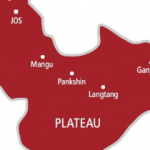On Monday, the traditional leaders of Akwa Ibom State’s Ika Local Government Area ratified a covenant that forbids both gender-based violence (GBV) and detrimental widowhood practices within their communities.
Remember that the process began on September 17, 2025, with a public announcement to stop damaging widowhood practices. This was followed by a period of intense community engagement, during which the covenant was created, approved, and ratified.
With assistance from the Ford Foundation, the Women At Risk International Foundation (WARIF), UN Women, and the Akwa Ibom State Ministry of Women Affairs and Social Welfare worked together to facilitate the exercise.
The covenant “represents a collective decision by traditional leaders, women leaders, youth representatives, and elders to abolish practices that demean and harm, and to uphold traditions that preserve and dignify,” according to His Royal Majesty Edidem Joseph Okosi Ekot, the Paramount Ruler of Ika, who spoke at the covenant signing.
Speaking through a representative, the royal father proclaimed that, in the name of tradition, no widow in their community should be subjected to any kind of humiliation. This occurred even after a community member courageously told the heartbreaking tale of how his mother was forced to shave her hair after becoming a widow, adding that the ordeal left a scar of shame that the family still bears today.
“This is a new dawn for Ika,” he said. Our culture is designed to protect and preserve, not to destroy. No widow in Ika will be subjected to humiliation in the name of custom from now on.
Ibrahim Nurudeen, a UN Women Programme Specialist, also spoke and praised the Ika traditional rulers for their brave decision to stop damaging widowhood customs, calling it a potent illustration of how culture can be turned into a force for justice. “Ika has set a strong precedent for other communities in Nigeria with this covenant, demonstrating that culture can change to protect the most vulnerable and uphold justice,” Nurudeen said.
The covenant, according to Nkechi Udoh (Esq), Director of Economic Affairs, is evidence that “real and lasting change is possible” when communities take charge.
“Today, Ika has given future generations of women hope and restored the dignity of widows,” she continued. This type of leadership propels advancement and motivates other communities to take action.
A charter outlawing harmful widowhood practices and GBV was signed in Uyo, where the exercise was replicated.





